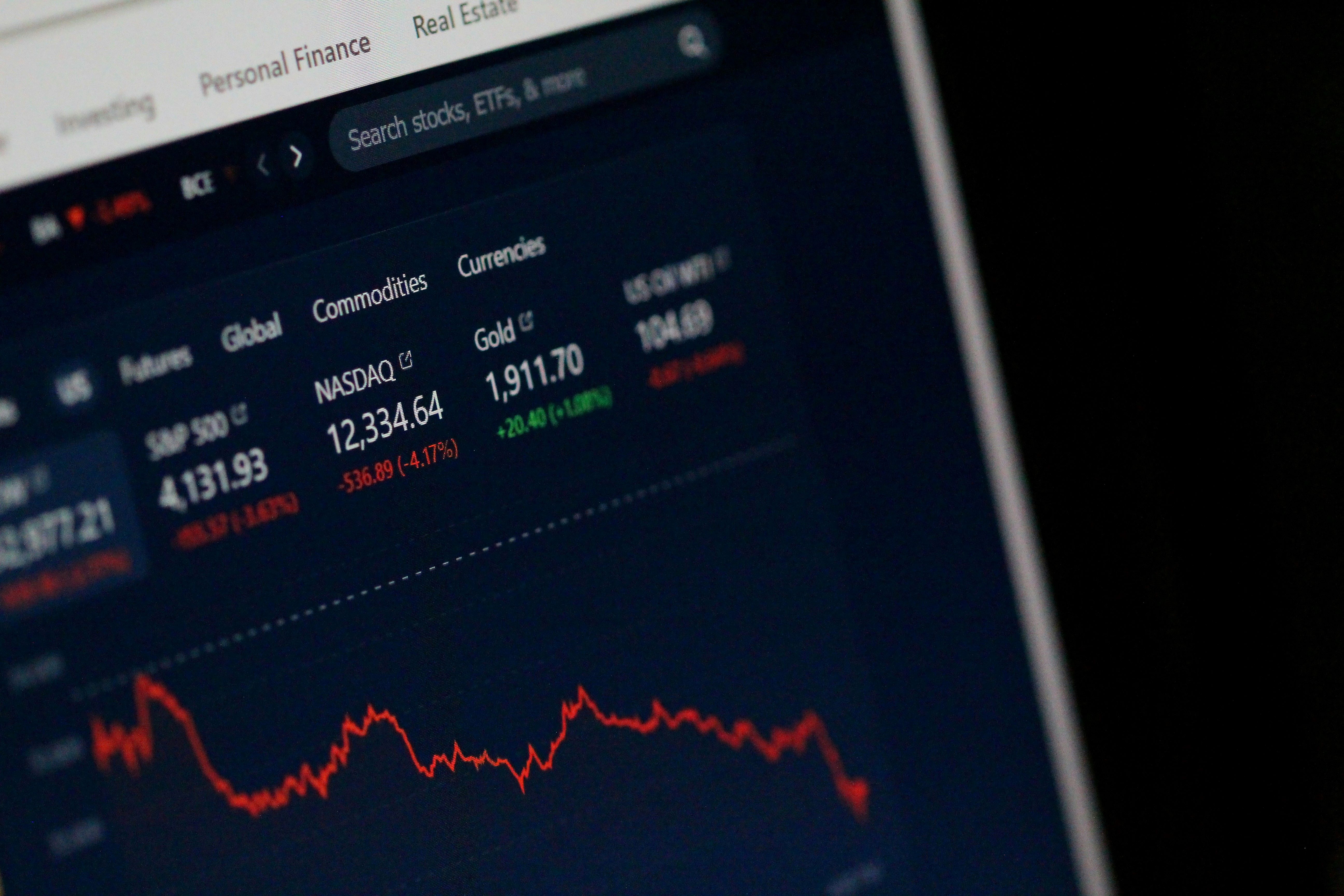Oracle Share Price Analysis: Bearish Phase, Valuation Signals and Bullish Reversal Outlook
$154.97
04 Feb 2026, 11:45

Unsplash.com

Key Points:
Asian Stocks Dip as Uncertainty Clouds US and China Economic Moves
Asian stock markets recorded a decline on Thursday as traders reacted to inflationary signals in the United States, sparking concerns about future interest rate cuts. Investors in the region are closely monitoring developments in China, where further stimulus measures are expected but have yet to materialise. Wall Street’s recent pullback has also affected investor sentiment, with US stock futures showing little movement during Asian trading hours.
US Inflation and Interest Rate Uncertainty Weigh on Markets
The recent US consumer price index report, aligning with October’s expectations, highlighted persistent inflation, which adds complexity to the Federal Reserve’s monetary policy. While there is still hope for a rate cut from the Fed in December, the long-term interest rate outlook remains uncertain. The market is waiting for more guidance from Fed Chair Jerome Powell, who is expected to provide an update on monetary policy, following a recent 0.25% rate cut by the Fed. Traders are now speculating on whether the Fed will continue with a cautious, data-driven approach to further rate adjustments.
Chinese Stocks Decline Amid Hopes for Stronger Economic Stimulus
Chinese stock indices, including the Shanghai Shenzhen CSI 300 and the Shanghai Composite, each dropped by 0.2%, while Hong Kong’s Hang Seng index slipped by 0.8% on Thursday. Despite positive financial results from major player Tencent Holdings, which saw its shares rise by over 1%, the broader Hong Kong market remained subdued. Investors are increasingly concerned that recent fiscal measures from Beijing have not been robust enough to support sectors like private spending and real estate, crucial to the country's economic stability. As a result, market participants are looking to the People's Bank of China’s upcoming loan prime rate decision next week, although analysts suggest further rate cuts are uncertain.
China’s political landscape is also shaping investor sentiment, with key government meetings scheduled in December that may reveal new economic measures. Additionally, China is assessing the impact of US trade policies, particularly potential tariffs under the new US administration, which could present additional economic challenges.
Australian Stocks Gain Slightly on Rate Stability Signals
In contrast to its Asian peers, Australia’s ASX 200 index climbed by 0.3%, buoyed by Reserve Bank of Australia Governor Michele Bullock's announcement that current interest rates would remain unchanged. Bullock reiterated that the RBA’s restrictive monetary stance will continue until inflation is convincingly on a downward trend. She also noted the ongoing impact of US economic uncertainties on Australian policy, pointing to the possible inflationary effect of new US trade policies.
Meanwhile, Australia’s labour market data for October indicated a cooling period following a robust six-month growth streak. A less active job market could reduce inflationary pressure, aligning with the RBA’s cautious approach.
Broader Asian Market Trends
Overall, Asian markets have encountered challenges, grappling with mixed indicators from both the US and Chinese economies. Japan’s Nikkei 225 fell by 0.6%, while the TOPIX index managed a slight uptick. South Korea’s KOSPI index rose by 0.4%, yet India’s Nifty 50 index pointed to a weaker opening following five consecutive sessions of losses, with the index down 10% from September’s record highs. High inflation and foreign investor withdrawals have contributed to recent declines in Indian markets.
In summary, uncertainty in the global economy continues to exert pressure on Asian markets, with the dual impact of anticipated US rate changes and China’s pending stimulus actions steering investor caution.
Source: (Investing.com)